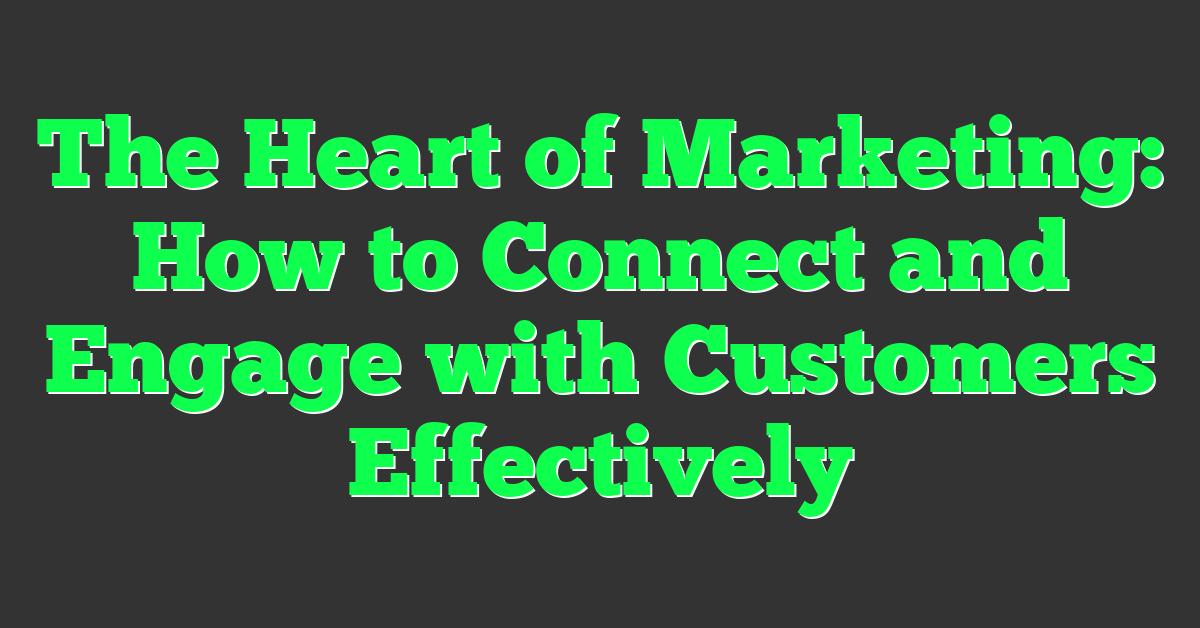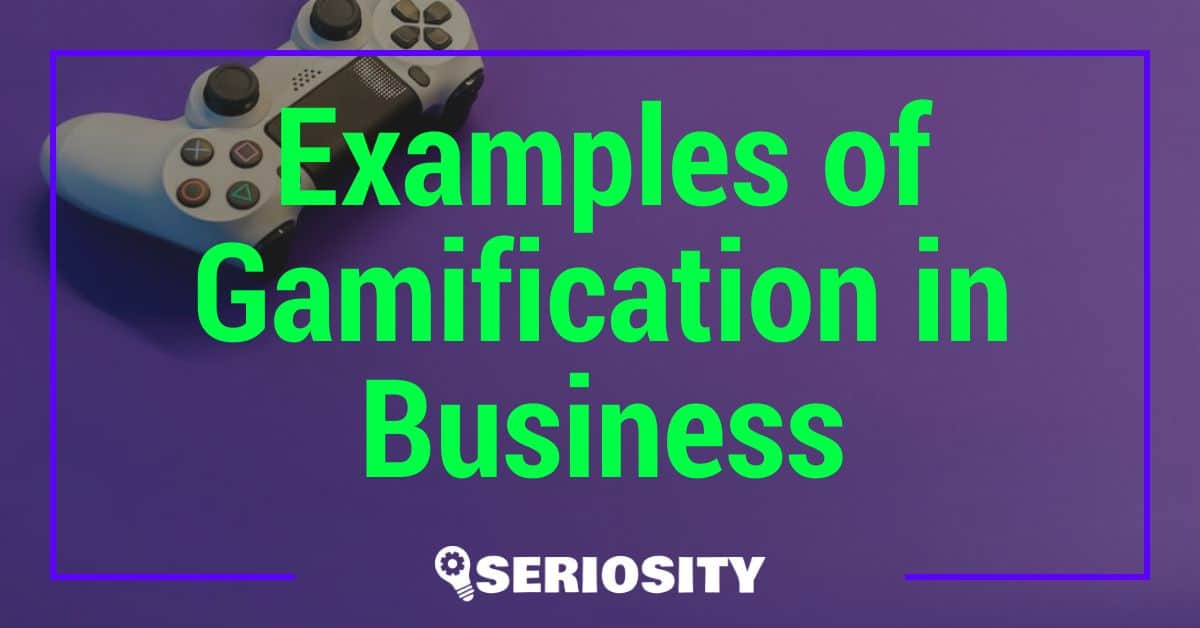In today’s fast-paced world, connecting with your customers has never been more crucial. It’s not just about selling a product or service; it’s about creating meaningful relationships that foster loyalty and trust. When you understand your customers’ needs and desires, you can craft messages that resonate deeply and inspire action.

Building these connections requires more than just a catchy slogan or a flashy ad. It involves genuine engagement, listening to feedback, and showing that you value their input. By putting your customers at the heart of your marketing strategy, you can turn casual buyers into passionate advocates for your brand. Ready to dive into the heart of marketing? Let’s explore how you can connect and engage with your customers like never before.
Key Takeaways
- Customer Engagement: Building meaningful relationships with customers fosters loyalty and trust, turning casual buyers into passionate advocates for your brand.
- Core Marketing Principles: Focus on authenticity, engagement, listening to feedback, and personalization to create deeper connections with your audience.
- Effective Social Media Use: Leverage platforms like Facebook, Instagram, and Twitter to interact directly with customers, share engaging content, and monitor trends for strategy refinement.
- Personalized Email Marketing: Customizing email content and optimizing frequency enhances engagement and drives sales, ensuring messages resonate with individual customer interests.
- Storytelling for Connection: Craft compelling brand narratives and use emotional marketing techniques to evoke feelings, making your brand relatable and memorable.
- Leveraging Technology: Utilize CRM software and data analytics tools to centralize customer data, understand behavior, and tailor marketing strategies for increased engagement and business growth.
Understanding the Heart of Marketing
To truly excel in marketing, you’ve got to grasp its core essence. Connecting with customers isn’t just about transactions—it’s about building relationships.
The Importance of Customer Engagement
Customer engagement is crucial for brand success because it transforms casual buyers into loyal advocates. Engaged customers are more likely to make repeat purchases and recommend your brand to others. For example, companies with high engagement rates often see increased customer retention, which directly boosts revenue. By focusing on meaningful interactions, you enhance their overall experience and foster a sense of community.
Core Principles of Connection Marketing
Connection marketing revolves around several key principles designed to build strong customer relationships.
- Authenticity: Customers value genuine interactions. When you’re authentic, you build trust. Show your true brand personality to stand out.
- Engagement: Actively engage with your customers through various channels like social media, email, or direct messages.
- Listening: Pay attention to customer feedback. Implementing changes based on their input shows that you value their opinions.
- Personalization: Tailor your marketing strategies to meet individual needs. Use data analytics to understand preferences and provide relevant recommendations.
By focusing on these core principles, you’ll create deeper connections with your audience, resulting in long-term loyalty and sustained business growth.
Strategies to Connect with Customers
Engaging with customers requires a mix of online tools and personalized approaches. These core strategies help build lasting relationships and foster loyalty.
Utilizing Social Media Effectively
Platforms like Facebook, Instagram, and Twitter offer direct channels to interact with customers. Sharing compelling content, responding to comments, and running interactive polls keep audiences engaged. Posting regularly maintains visibility, while utilizing platform-specific tools, such as Instagram Stories or Twitter Chats, facilitates dynamic engagement. Collaborating with influencers can amplify reach and attract new followers. Monitor and analyze trends through social media analytics to refine your strategy and stay connected.
Email Marketing: Personalization and Frequency
Email remains a powerful tool for customer connection. Personalized emails, addressing customers by name and targeting their interests, enhance engagement. Maintaining an optimal frequency is key; too many emails can overwhelm, while too few can lead to disengagement. Segmenting your email list ensures that content is relevant to each customer group. Incorporate call-to-actions (CTAs) and offer exclusive deals to encourage interactions and drive sales. Use analytics to track open rates and click-through rates, adjusting your strategy for maximum effectiveness.
Engaging Customers through Storytelling
Storytelling offers a powerful medium to engage customers, allowing you to build deeper connections. Sharing relatable stories can make your brand memorable and give it a human touch.
Building Brand Narratives
Crafting a compelling brand narrative is crucial for connecting with your audience. Focus on your brand’s origin story, core values, and mission. For example, share why you started your business and the challenges you faced. Show authenticity and relate to your customers’ experiences. Highlight your journey and evolution over time.
Emotional Marketing Techniques
Emotional marketing techniques can drive customer engagement by tapping into emotions like joy, trust, or excitement. Use visuals, anecdotes, and real-life testimonials to evoke feelings. For instance, showcase customer success stories or create sentimental ads that provoke nostalgia. Emotional connections make your brand more relatable, encouraging customer loyalty and advocacy.
Tools and Technologies for Marketing Engagement
In today’s digital age, leveraging the right tools and technologies is crucial for effective marketing engagement. As an entrepreneur always seeking new ways to connect with your audience, you need the best solutions to stay ahead.
CRM Software Solutions
Customer Relationship Management (CRM) software centralizes customer data to improve interactions and relationships. Platforms like Salesforce, HubSpot, and Zoho CRM streamline communication, automate sales processes, and provide actionable insights. CRMs help you track customer interactions, manage leads, and segment audiences for targeted marketing. For instance, you can automate follow-up emails and set reminders for customer check-ins, ensuring no opportunity is missed.
- Salesforce: Known for its robust customization, the platform allows complex workflows to be automated, enhancing productivity.
- HubSpot: With a user-friendly interface, it integrates marketing, sales, and customer service tools, making it suitable for startups.
- Zoho CRM: Offers cost-effective options and extensive features, ideal for small businesses.
Data Analytics In Understanding Customer Behavior
Data analytics tools are essential for comprehending customer behavior and tailoring your marketing strategies. Google Analytics, Mixpanel, and Tableau provide deep insights into customer journeys, preferences, and engagement patterns. Analyzing this data helps you identify trends, predict future behaviors, and optimize campaigns accordingly.
- Google Analytics: Offers comprehensive data on website traffic, user behavior, and conversion rates, helping you refine your online strategies.
- Mixpanel: Tracks user interactions with your product, allowing you to understand how customers use your services and where they drop off.
- Tableau: Visualizes complex data sets, making it easier to interpret data and make informed decisions.
Using these tools, you can create personalized marketing experiences, increase engagement, and ultimately drive business growth. By integrating CRM software and data analytics, your marketing efforts become more streamlined and effective, fostering deeper connections with your customers.
Conclusion
Connecting and engaging with your customers is at the heart of effective marketing. By truly understanding their needs and fostering genuine relationships, you can build loyalty and advocacy. Embracing authenticity and personalization helps create meaningful connections. Leveraging storytelling and emotional marketing further enhances brand engagement.
In today’s digital age, utilizing tools like CRM software and data analytics is crucial. These technologies allow you to centralize customer data and gain insights into their behavior, enabling you to craft personalized experiences. This not only boosts engagement but also drives growth and deepens your customer relationships. Remember, the key to successful marketing lies in connecting with your customers on a deeper level.
Frequently Asked Questions
What is the importance of building strong customer relationships?
Building strong customer relationships is vital for fostering loyalty and advocacy. By understanding customer needs, engaging genuinely, and listening to feedback, businesses can create a loyal customer base that is more likely to advocate for the brand.
What are the core principles of connection marketing mentioned in the article?
The core principles of connection marketing highlighted are authenticity and personalization. These principles help build trust and create deeper connections with customers.
How can storytelling and emotional marketing enhance brand engagement?
Storytelling and emotional marketing captivate audiences by tapping into their emotions. This makes the brand more relatable and memorable, thereby enhancing engagement and connection with the customers.
Why are CRM software solutions crucial for marketing engagement?
CRM software solutions like Salesforce, HubSpot, and Zoho CRM centralize customer data, making it easier to manage relationships and personalize interactions, which boosts engagement and drives growth.
Which data analytics tools are recommended for understanding customer behavior?
The article recommends data analytics tools such as Google Analytics, Mixpanel, and Tableau. These tools help businesses analyze customer behavior, enabling more informed and effective marketing strategies.
How do CRM and data analytics tools work together to benefit businesses?
CRM and data analytics tools complement each other by providing insights and a centralized view of customer interactions. This combination enables businesses to create personalized experiences and improve engagement, ultimately driving growth.















